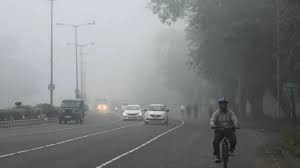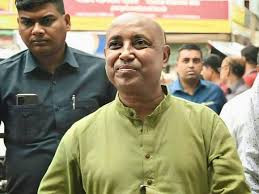Transport Department Mandates License for Buying and Selling Old Cars Under New Guidelines
IIE DIGITAL DESK : The move aimed at regulating the thriving second-hand automobile market in India, the Department of Transport has announced that anyone wishing to engage in the business of buying and selling used cars must now obtain a valid license from the relevant transport authority. The new mandate is part of a broader effort to bring transparency, accountability, and legal compliance to the pre-owned vehicle sector, which has so far operated with minimal oversight.
Issued by the Ministry of Road Transport and Highways (MoRTH), requires all individuals, companies, and automobile dealers involved in the resale of old or used vehicles to register themselves as authorized dealers. Only those possessing this license will be legally permitted to trade in used vehicles, whether through physical showrooms or digital platforms.
This regulatory change was necessitated by increasing concerns over fraudulent transactions, lack of ownership clarity, and non-payment of dues such as road taxes and challans. Numerous cases have emerged in recent years where buyers of second-hand vehicles were penalized for violations committed by previous owners, owing to the failure in timely transfer of ownership.
Under the revised guidelines, licensed dealers will be responsible for ensuring that all second-hand vehicle transactions are recorded accurately. They must verify the legitimacy of documents, check for any pending liabilities on the vehicle, and complete the ownership transfer process through the government’s Vahan portal within a stipulated time.
Dealers will also be required to maintain detailed records of all vehicles bought and sold, including registration numbers, chassis and engine details, previous ownership history, and buyer credentials. The data will be monitored periodically by the transport department to prevent misuse or criminal activities such as vehicle theft and document forgery.
A senior official from the transport ministry said, “We aim to formalize and regulate the used vehicle industry, which has grown significantly in the last decade. Licensing is essential to eliminate loopholes and ensure that buyers are protected from future legal hassles. It will also help in curbing tax evasion and bring more revenue transparency.”
The second-hand vehicle market in India has been expanding at a rapid pace, often surpassing the new car sales figures in certain urban and semi-urban regions. The entry of organized players and online platforms has further boosted consumer confidence. However, the absence of a regulatory framework has made the industry vulnerable to malpractices, from odometer tampering to title fraud.
Industry players have responded with mixed reactions to the new rule. While many established dealers and online platforms such as Cars24, OLX Autos, and Spinny have welcomed the move as a step toward creating trust and standardization, smaller unregistered operators see it as a regulatory burden. Some have expressed concerns about potential delays in obtaining licenses and increased compliance costs.
In response, the ministry has assured that the license application process will be made available both online and offline, with minimal paperwork and a focus on ease of doing business. The licenses will be issued at the state or regional transport office level and will remain valid for a fixed term, subject to renewal.
The new guidelines will also hold licensed dealers accountable for the condition of vehicles sold, thereby making them partially liable for mechanical or legal defects not disclosed at the time of sale. This provision is expected to raise the overall quality of service in the pre-owned car market.
The Department of Transport has urged all used car dealers to initiate the licensing process without delay to avoid penalties. The move, government officials insist, will pave the way for a safer, more reliable used car buying experience for Indian consumers, while bringing order to one of the country's most dynamic automotive sectors.
You might also like!














